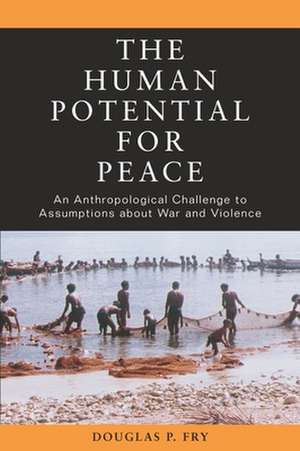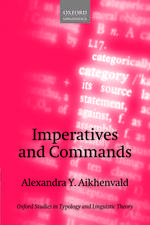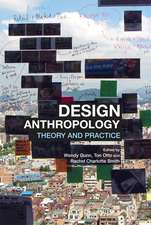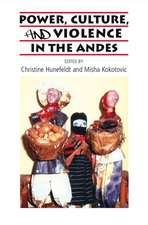The Human Potential for Peace: An Anthropological Challenge to Assumptions about War and Violence
Autor Douglas P. Fryen Limba Engleză Paperback – 7 sep 2005
The Human Potential for Peace includes ethnographic examples from around the globe, findings from Fry's research among the Zapotec of Mexico, and results of cross-cultural studies on warfare. In showing that conflict resolution exists across cultures and by documenting the existence of numerous peaceful societies, it demonstrates that dealing with conflict without violence is not merely a utopian dream. The book also explores several highly publicized and interesting controversies, including Freeman's critique of Margaret Mead's writings on Samoan warfare; Napoleon Chagnon's claims about the Yanomam�; and ongoing evolutionary debates about whether "hunter-gatherers" are peaceful or warlike. The Human Potential for Peace is ideal for undergraduate courses in political and legal anthropology, the anthropology of peace and conflict, peace studies, political sociology, and the sociology of war and violence. Written in an informal style with numerous entertaining examples, the book is also readily accessible to general readers.
| Toate formatele și edițiile | Preț | Express |
|---|---|---|
| Paperback (1) | 572.59 lei 6-8 săpt. | |
| Oxford University Press – 7 sep 2005 | 572.59 lei 6-8 săpt. | |
| Hardback (1) | 1184.09 lei 6-8 săpt. | |
| Oxford University Press – 10 aug 2005 | 1184.09 lei 6-8 săpt. |
Preț: 572.59 lei
Preț vechi: 743.62 lei
-23% Nou
Puncte Express: 859
Preț estimativ în valută:
109.58€ • 113.98$ • 90.46£
109.58€ • 113.98$ • 90.46£
Carte tipărită la comandă
Livrare economică 14-28 aprilie
Preluare comenzi: 021 569.72.76
Specificații
ISBN-13: 9780195181784
ISBN-10: 0195181786
Pagini: 384
Ilustrații: numerous halftones, tables and line drawings
Dimensiuni: 155 x 234 x 18 mm
Greutate: 0.54 kg
Editura: Oxford University Press
Colecția OUP USA
Locul publicării:New York, United States
ISBN-10: 0195181786
Pagini: 384
Ilustrații: numerous halftones, tables and line drawings
Dimensiuni: 155 x 234 x 18 mm
Greutate: 0.54 kg
Editura: Oxford University Press
Colecția OUP USA
Locul publicării:New York, United States
Descriere
The Human Potential for Peace provides a clearly written, critical reevaluation of anthropological findings on violence, war, peace, and conflict management. Drawing upon anthropological data from both cultural studies and evolutionary biology, Douglas Fry challenges the traditional view that humans are naturally violent and warlike and argues that we, in fact, possess a strong ability to prevent, limit, and resolve conflicts. He examines several highlypublicized anthropological controversies, including Freeman's analysis of Margaret Mead's writings on Samoan warfare; Napoleon Chagnon's claims about the Yanomami; and ongoing debates about whether "hunter-gatherers" are peaceful or warlike. The book features short ethnographic examples, findings from Fry'sresearch among the Zapotec of Mexico, and results of cross-cultural studies on warfare. It also includes descriptions of peaceful societies and archaeological material illustrating that peacemaking and conflict resolution patterns do exist across cultures.
















